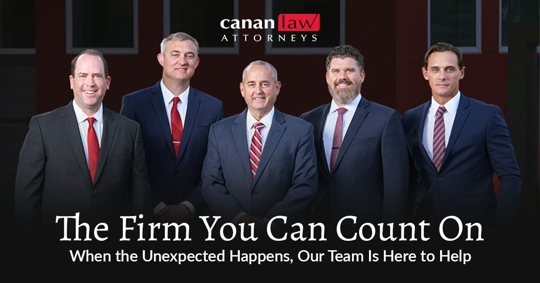Cathedral Arts Project, Inc. v. Department of Economic Opportunity-First District Court of Appeals
This story brought to you by Canan Law, the most respected team of attorneys in St. Augustine.
Many people are aware that churches enjoy a special tax-exempt status in Florida, but do charitable or community organizations affiliated with or operated by a church also qualify as tax-exempt institutions? A recent case in Florida’s First District Court of Appeals showed that an organization’s stated purpose comes into play when determining its taxation status.
The Department of Economic Opportunity argued that Cathedral Arts Project, Inc. owed taxes for unemployment compensation payments because the organization did not qualify for exemption under Florida law.
The Court pointed to Florida Statutes in filing an opinion on this case. Section 443.1216(4)(a)2. makes any organization “operated primarily for religious purposes and . . . operated, supervised, controlled, or principally supported by a church or a convention or association of churches” exempt from taxation. Therefore, in Cathedral Arts Project, Inc. v. Dept. of Economic Opportunity, the primary function of the community group was called into question.
Cathedral Arts Project, Inc. argued that it enjoys tax-exempt status as a religious institution because it is operated by St. John’s Cathedral of Jacksonville. Furthermore, the Cathedral’s Chancellor, Stephen D. Busey, testified that the group “performs spiritual enrichment and personal growth to underprivileged children.” Although his testimony also stated that he observed the organization’s instructors “giving instruction in the arts,” he affirmed that it operates primarily for religious purposes.
The Department of Economic Opportunity argued that Cathedral Arts Project, Inc. functions primarily to support the teaching of the arts to children in the community, subjecting it to taxation just as any secular community service organization.
The First District Court of Appeals agreed with the Department of Economic Opportunity, commenting that its special deputy’s finding that Cathedral Arts Project, Inc. does not operate primarily for religious purposes is supported by “competent, substantial evidence.” The Court also stresses in its filed opinion that this ruling “should not be taken to mean that all organizations throughout Florida that provide both religious and secular services” are taxable. Due to the specificity in the law that calls into question the primary function of groups and organizations, case-by-case judgment is requisite.
Exemplifying the difficulty in judging cases like this, Justice Swanson filed a dissenting opinion, citing that according to Peace Lutheran Church v. State, Unemployment Appeals Commission, Cathedral Arts Project, Inc. should be exempt because it is operated by the church and therefore carries the same motivation in its daily operation.
The law can be difficult to decipher and sometimes ambiguous with regards to tax-exempt status. If you or your organization has a question regarding tax-exempt status, the experienced attorneys at Canan Law can help you understand how the law applies to you.
Canan Law, the most respected team of attorneys in St. Augustine, keeps you informed with blog posts discussing legal terms and Florida court cases that matter to you. Ask your legal question today with our website’s live chat feature!



